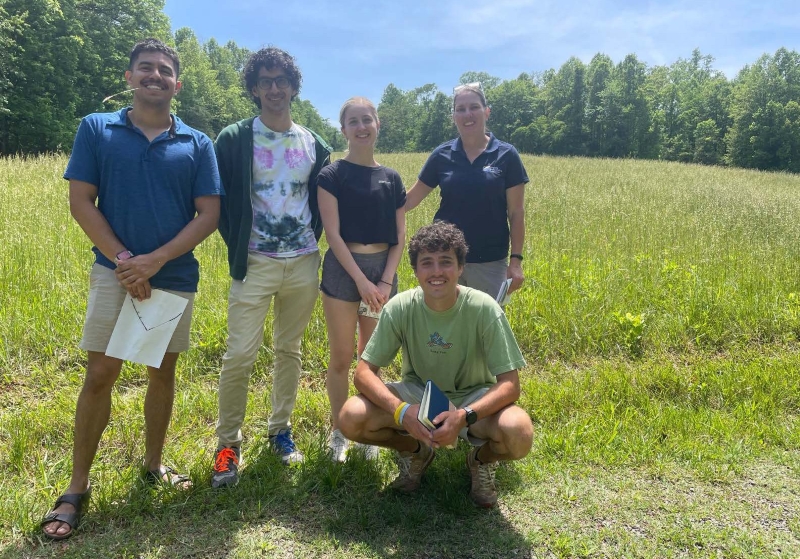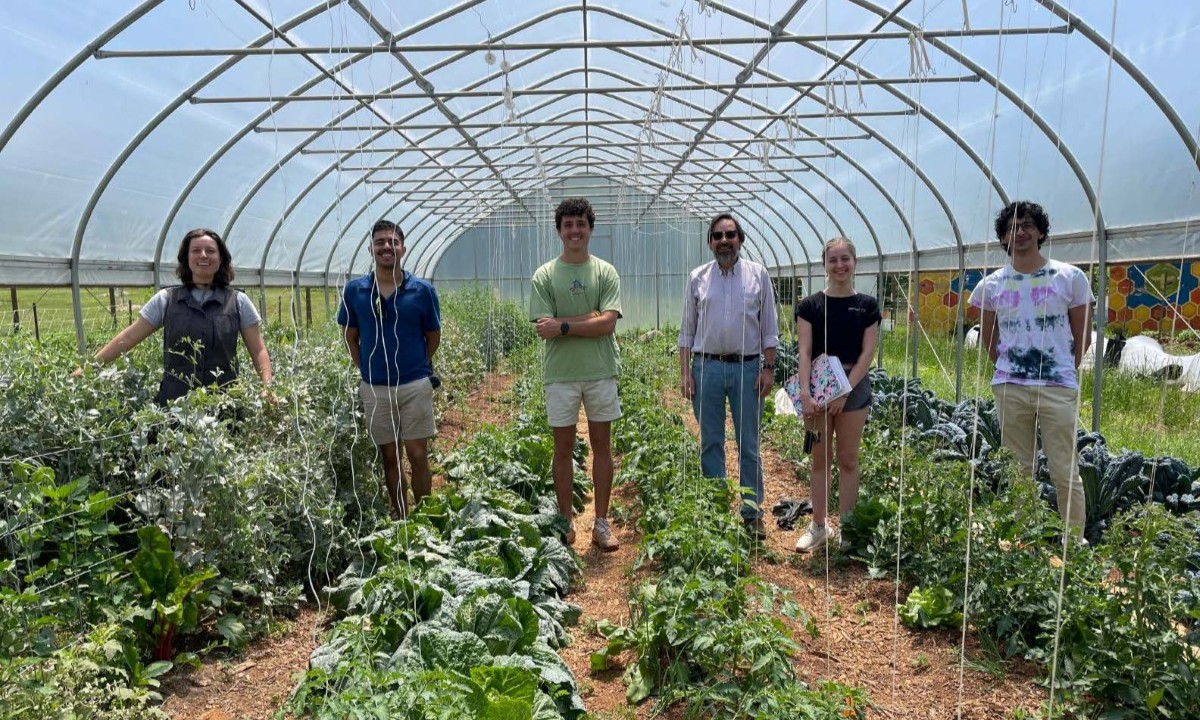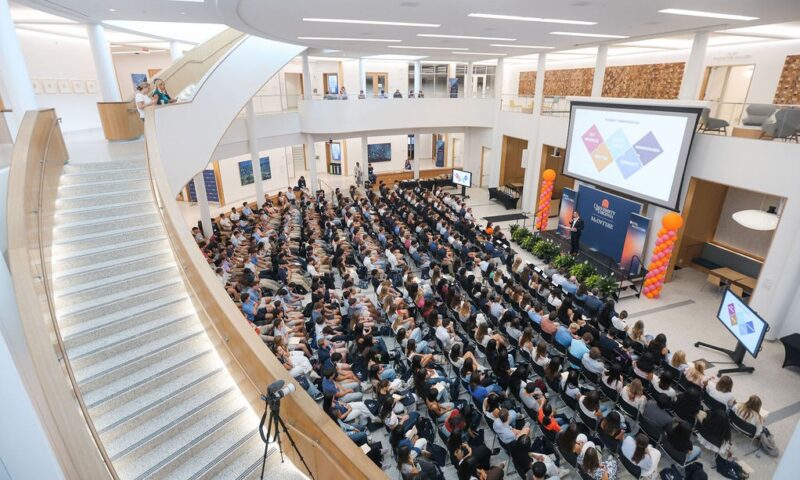UVA students recently stepped into the 2,900-acre “living laboratory” of UVA’s Morven Farm, along with other local farm and forest settings, to explore the interface between business and nature. Led by McIntire Professor Mark White from May 19 to 30, the course Sustainable Ventures in Working Landscapes: Business Innovation for Farm and Forest challenged students to examine the complex relationship between business, agriculture, and environmental stewardship across working landscapes.
As part of an intense learning experience outside of the traditional classroom environment on Grounds, the new two-week summer course created and launched by White adds to a lengthy list of innovations at the Commerce School. The course is the latest unique educational experience McIntire has pioneered in its long, successful history as a leader in business education.
The course presents vital questions about creating profitable, sustainable ventures that restore ecosystems and balancing commercial opportunities with responsible land use. Through this immersive, hands-on class, learners are prompted to research and design business models grounded in Morven’s diverse natural resources, with special attention given to regenerative agriculture, sustainable forestry, ecosystem service markets, traditional crafts, and agritourism.
Transformational Trips and Inspirational Speakers
Two fundamental components of the course are experiential learning and lectures from a wide range of eco-conscious experts. As such, the students had the privilege of participating in field trips to local ventures, providing them with a firsthand view of sustainable enterprise operations in action.
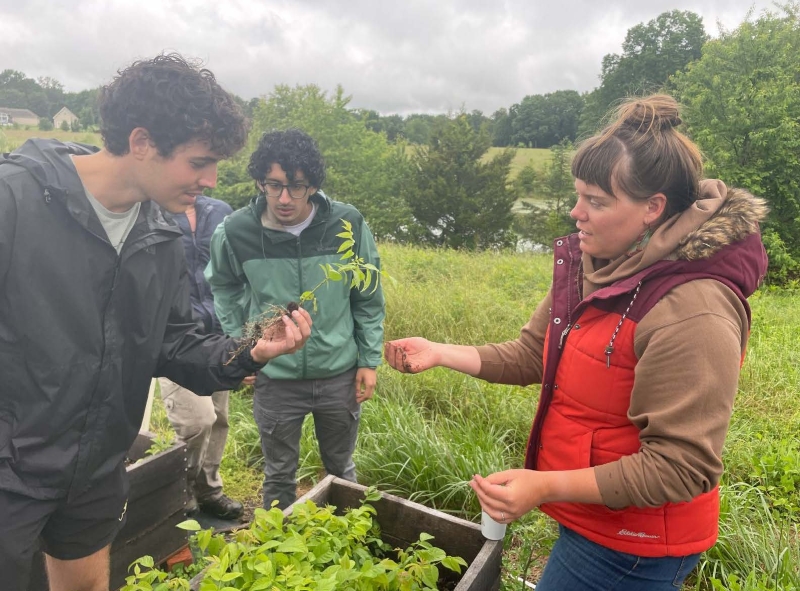
ShireFolk Farm, Bellair Farm, Thistlerock Mead Company, and Caromont Farm were part of a series of visits intended to cement their understanding of sustainable businesses. “We were also fortunate to take several field trips to local nature-positive businesses, where we were warmly received and benefited greatly from an in situ understanding of the practical challenges associated with nature-based businesses,” White enthusiastically shares, adding that the class was treated to some of the goods the farms produce, such as goat cheese and mead.
In addition to the dynamic trips, students also engaged with field experts, who offered discussions and workshops on a variety of subjects, ranging from forest farming to the many well-being benefits of nature. For instance, Morven’s Fiona Flynn provided illuminating insights into the operational hurdles of kitchen gardening; Carrie Swanson from the Virginia Cooperative Extension discussed regenerative agriculture through soil health and holistic land management; while Katy Clune from the Virginia Folklife Program discussed the ways traditional crafts such as basket-weaving, woodworking, and fiber arts support sustainable entrepreneurship. Further encounters with professionals from the Virginia Department of Agriculture and Consumer Services, Department of Forestry, and other organizations broadened the students’ understanding of sustainable business practices.
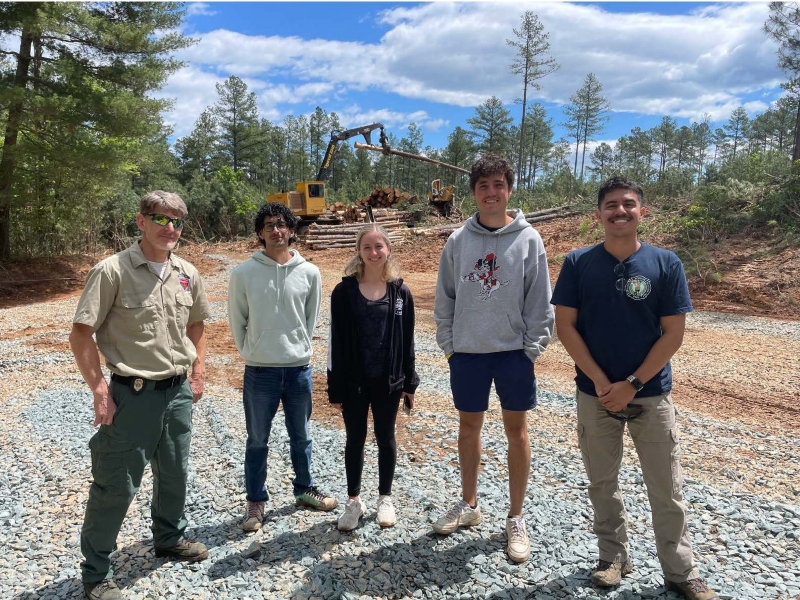
Fueling Sustainable Business Ideas
Armed with knowledge gained from rigorous field excursions and expert guidance, students began to shape their inventive business plans. For Shah Zaib Hashmi (Engineering ’25), who completed McIntire’s General Business Minor with the course, this exposure revealed facets of the communities surrounding UVA that he had yet to appreciate: “It opened my eyes to what Charlottesville was,” he admits. “I spent four years here, and I’ve just been driving up and down Route 29. I saw all these vineyards and farmlands around me, but actually going into them, I’m seeing that there’s many smaller pockets of communities within them.”
His partner in the course, rising third-year Statistics major and Global Sustainability Minor student Benjamin Davis (A&S ’27) found that this fertile ground shaped his newly acquired insights—and the business plan he and Hashmi crafted. They envisioned a venture that would transform part of Morven into a nature-positive cut flower business. Their plan focused on “providing the UVA community with locally grown, organic native heirloom blooms and creating a profitable, environmentally restorative business model.”
Smaller-scale farms, they noted, have seen an impressive increase in nursery sales in recent years. By cultivating an array of flowers that thrive in Virginia’s agricultural zone, ranging from hydrangeas to Virginia dogwoods, their business model promised freshness, sustainability, and profitability in the coming five years.
The profound learning that occurred was evident in students’ testimonials. Hashmi reminisces, “It’s a class that’s intimate,” adding how the passion and curiosity of White inspired deeper engagement. “It’s a study abroad in Charlottesville. I felt like I was in a different country.”
Crafting Change: Student Business Plans and Faculty Reflections
The course’s conclusion unfolded with the presentation of these comprehensive business plans, demonstrating the students’ assimilation of sustainable business practices.
Bella Becchi (McIntire ’26) spearheaded an alternative venture with Sociology major Julio Buelna (A&S ’25). Their proposal, “Morven Makers,” offered a vision for Morven Farms as a vibrant educational hub showcasing traditional Appalachian crafts. Their business model entailed “providing hands-on, immersive workshops in traditional Appalachian crafts focusing on cultural education, sustainability, and community engagement.” It emphasized reconnecting communities and enriching cultural understanding through craft workshops, agrotourism, and educational programs tailored to schools and public visitors. “Morven will differentiate itself from other ventures through its unique partnerships and scenic location,” summarized Becchi, highlighting the proposal’s potential to capitalize on Morven’s affiliation with UVA as well as its picturesque setting.
As the students reflected on their projects, White shared immense pride in the course outcomes and the remarkable commitment demonstrated by the students. “Both deliverables were excellent, the more so because the projects were conceived, developed, and completed within such a very short time!” he remarks, emphasizing the transformative learning experience this course signified for everyone involved.
Becchi attests to the value brought through a mix of hands-on experience and the challenging application of financial concepts, noting that her understanding transcended conventional classroom boundaries. “From the Comm School perspective, this is so much more fun than any other finance class you could possibly take. As far as I know, nobody else is getting Finance credits and getting to snuggle baby goats.”
Ultimately, the course cemented itself as a milestone in UVA’s academic landscape, capturing the symbiotic relationship between nature and commerce. “The course was definitely one of the most exciting and knowledge-packed learning experiences that I’ve had the privilege of participating in at UVA,” White says. Through visionary projects and reflective practices, the student participants emerged enlightened and better prepared to contribute to a world where business and nature can flourish together.
